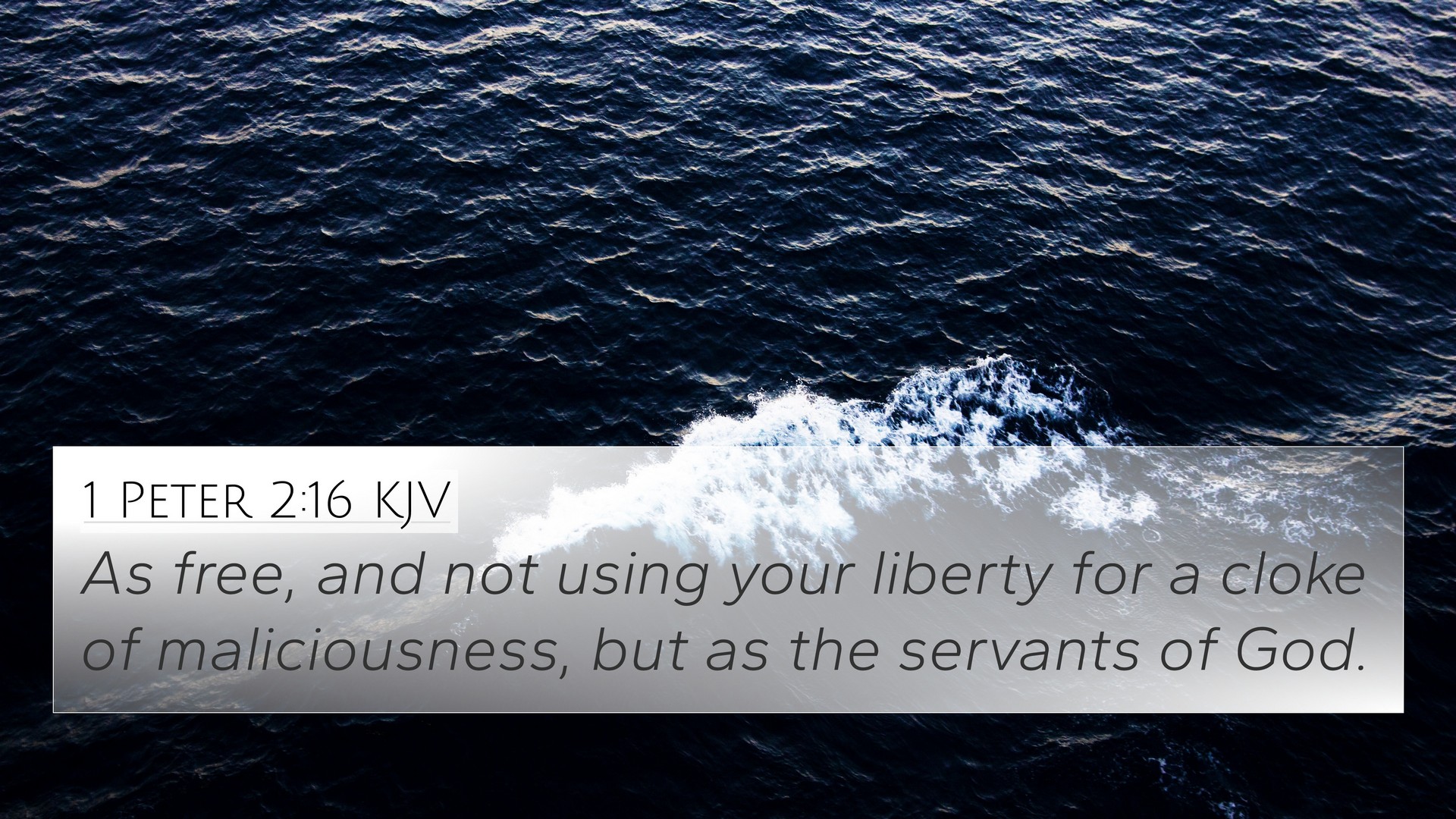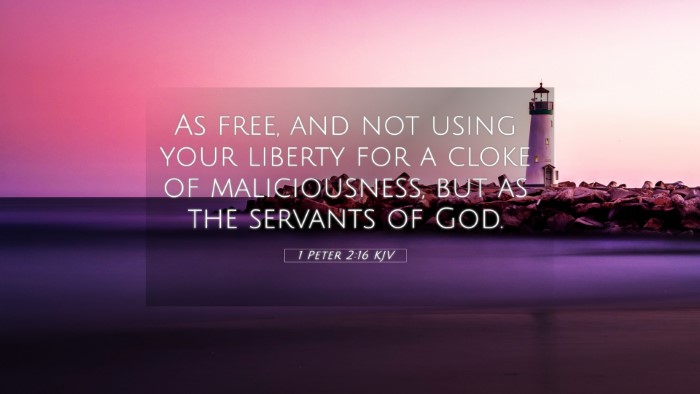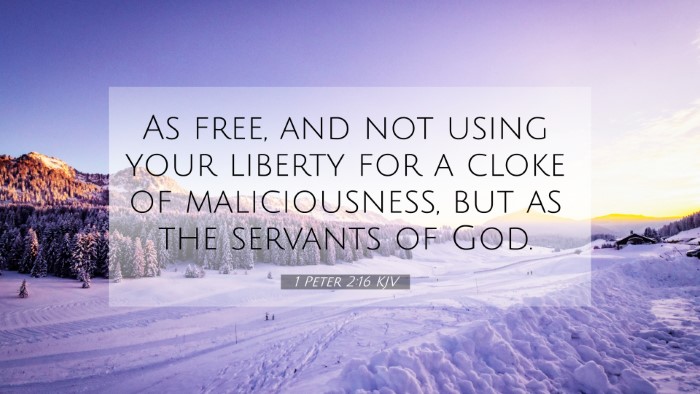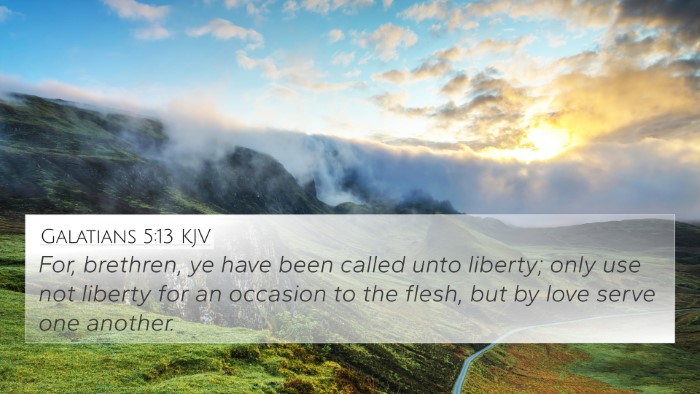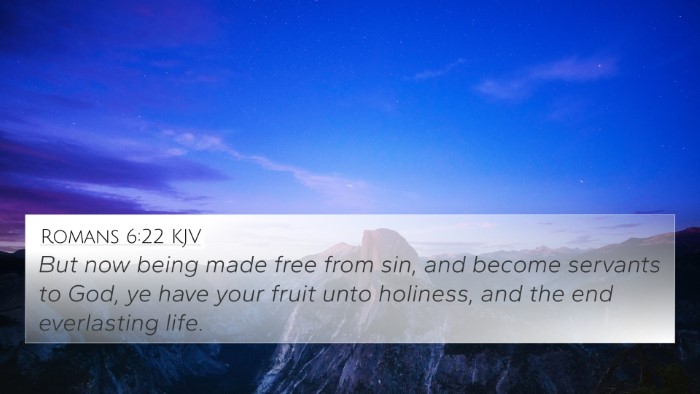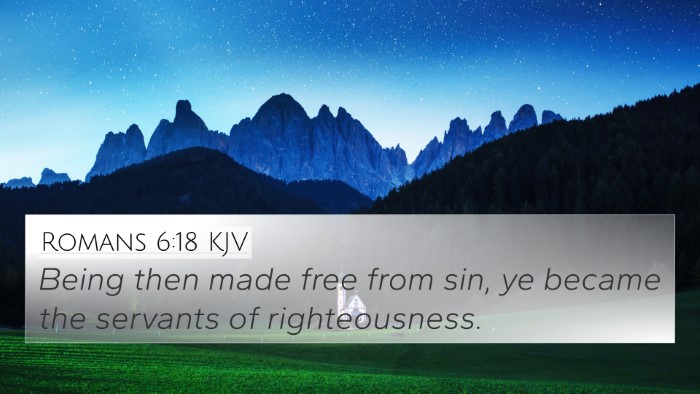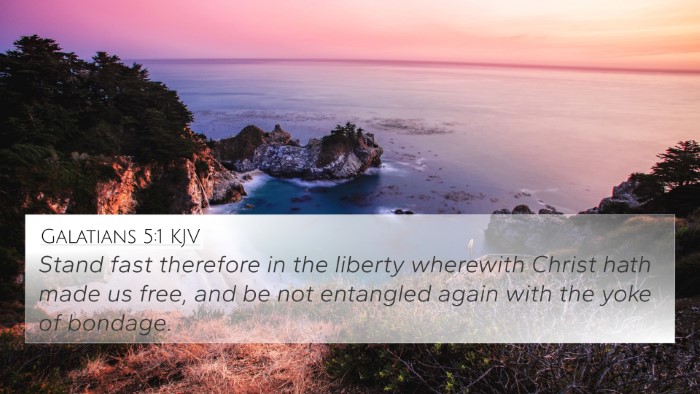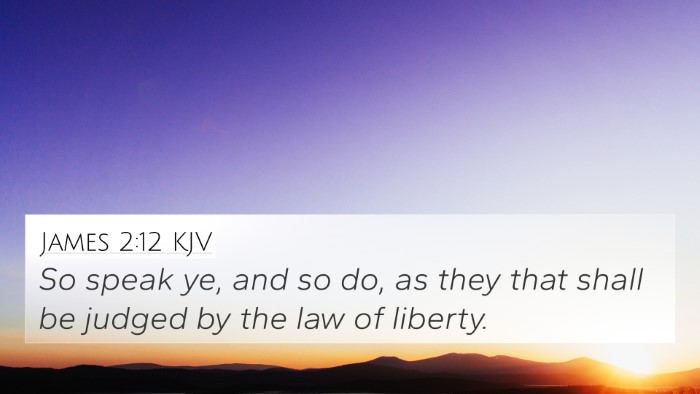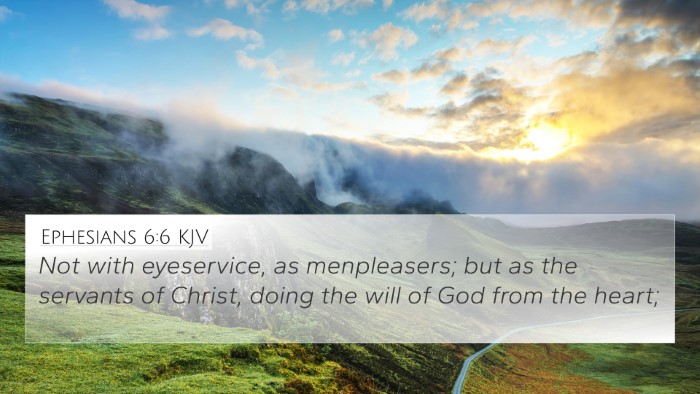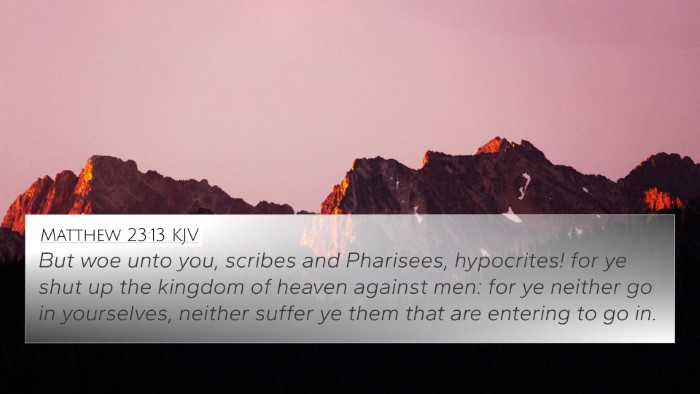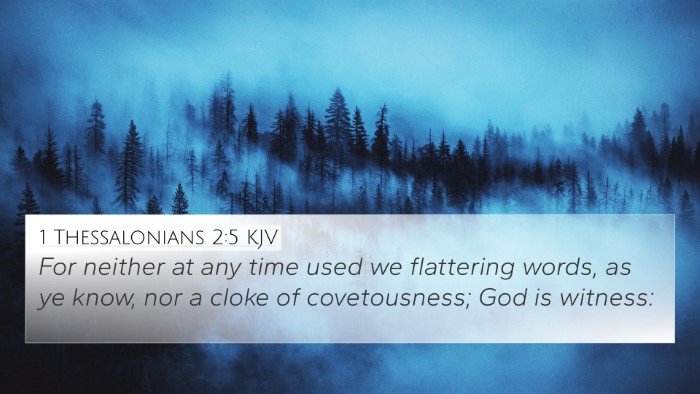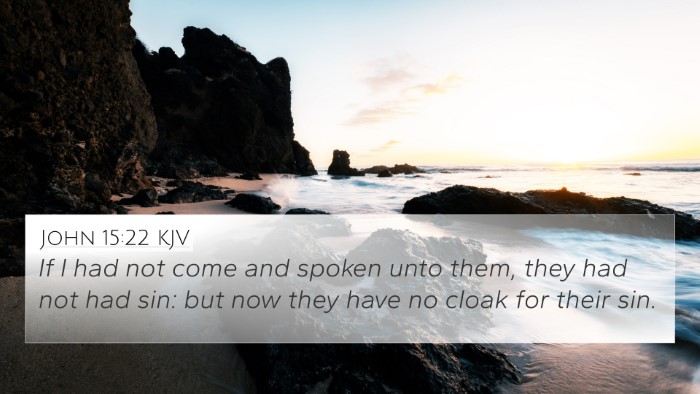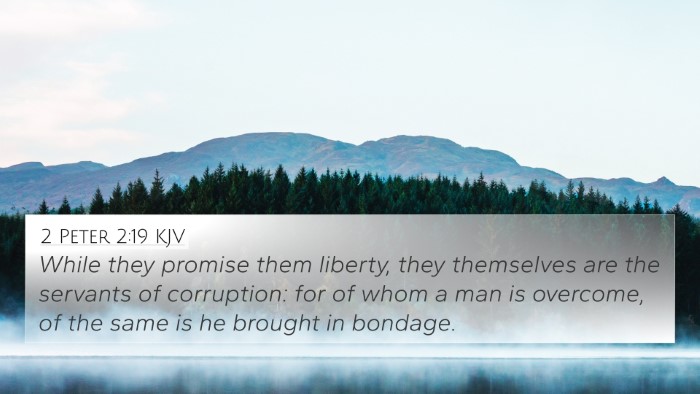Understanding 1 Peter 2:16
Bible Verse: 1 Peter 2:16 - "Live as people who are free, not using your freedom as a cover-up for evil, but living as servants of God."
This verse emphasizes the duality of freedom and responsibility in the Christian faith. It calls believers to embrace their liberty while simultaneously recognizing the need for servitude under God. The complexity of this verse calls for a deeper understanding, drawing from various public domain commentaries.
Meaning and Insights
Matthew Henry's Commentary: Henry emphasizes the notion of freedom in Christ, noting that believers are liberated from sin and the law. However, this freedom should not serve as a license for misconduct. True freedom is demonstrated through obedience to God and service to others. Henry reminds us that one is free to serve God wholeheartedly, drawing a line between genuine liberty and the misuse of it.
Albert Barnes' Notes on the Bible: Barnes articulates the idea that Christians have been set free by the grace of God, yet this freedom entails a call to holiness and service. He highlights the danger of using one's freedom as a rationale for sinful behavior, asserting that such actions betray the very purpose of salvation. He stresses that believers should view their freedom as an opportunity to serve, rather than a means to indulge in wickedness.
Adam Clarke's Commentary: Clarke provides additional depth by addressing the cultural context, where freedom was highly sought after. He notes that while the believers in Asia Minor experienced real oppression, their freedom in Christ transcended their circumstances. This verse encourages them to exercise their liberty responsibly, making choices that glorify God and uplift others. Clarke emphasizes the calling to servitude as an expression of true freedom.
Bible Verse Cross-References
To fully appreciate the implications of 1 Peter 2:16, here are some relevant Bible verses that connect thematically:
- Galatians 5:13: "For you were called to freedom, brothers. Only do not use your freedom as an opportunity for the flesh, but through love serve one another." This verse reinforces the idea of using freedom responsibly in service to others.
- Romans 6:18: "And having been set free from sin, have become slaves of righteousness." This passage emphasizes the transition from servitude under sin to service in righteousness, echoing the themes presented in 1 Peter.
- John 8:36: "So if the Son sets you free, you will be free indeed." This highlights the fundamental truth of freedom obtained through Christ.
- 1 Corinthians 6:12: "All things are lawful for me, but not all things are helpful. All things are lawful for me, but I will not be enslaved by anything." This underscores the idea of freedom tempered by discernment and responsibility.
- Philippians 2:7: "But made himself nothing, taking the form of a servant, being born in the likeness of men." This illustrates the model of Christ's servanthood, which believers are called to emulate.
- Luke 22:27: "For who is greater, one who reclines at table or one who serves? Is it not the one who reclines at table? But I am among you as the one who serves." Here, Jesus exemplifies the greatest form of service.
- Romans 12:1: "I appeal to you therefore, brothers, by the mercies of God, to present your bodies as a living sacrifice, holy and acceptable to God, which is your spiritual worship." This reinforces the act of service as worship unto God.
Key Themes
The primary themes within 1 Peter 2:16 revolve around:
- Freedom in Christ: Understanding what it means to be free from sin and law.
- Responsibility: The need to live responsibly and considerately in light of one's freedom.
- Servanthood: The call to serve God and others as a demonstration of true freedom.
Connections Between Bible Verses
This verse leads to intriguing connections between various scriptures, highlighting how they inform and deepen one another:
- The theme of servanthood is prevalent throughout the New Testament, connecting believers’ freedom to a life of service, particularly in the teachings of Jesus.
- Believers are called to reflect the nature of God through their actions, as God has served humanity through Christ.
- Understanding freedom in the context of community and love finds resonance in both Paul’s letters and the Gospels.
Conclusion
In summary, the interpretation of 1 Peter 2:16 reveals profound truths about the balance of freedom and servitude. As believers, the call to live freely must be intertwined with a commitment to serve God and others. This theme resonates throughout the New Testament, where the principles of love, responsibility, and service are paramount.
